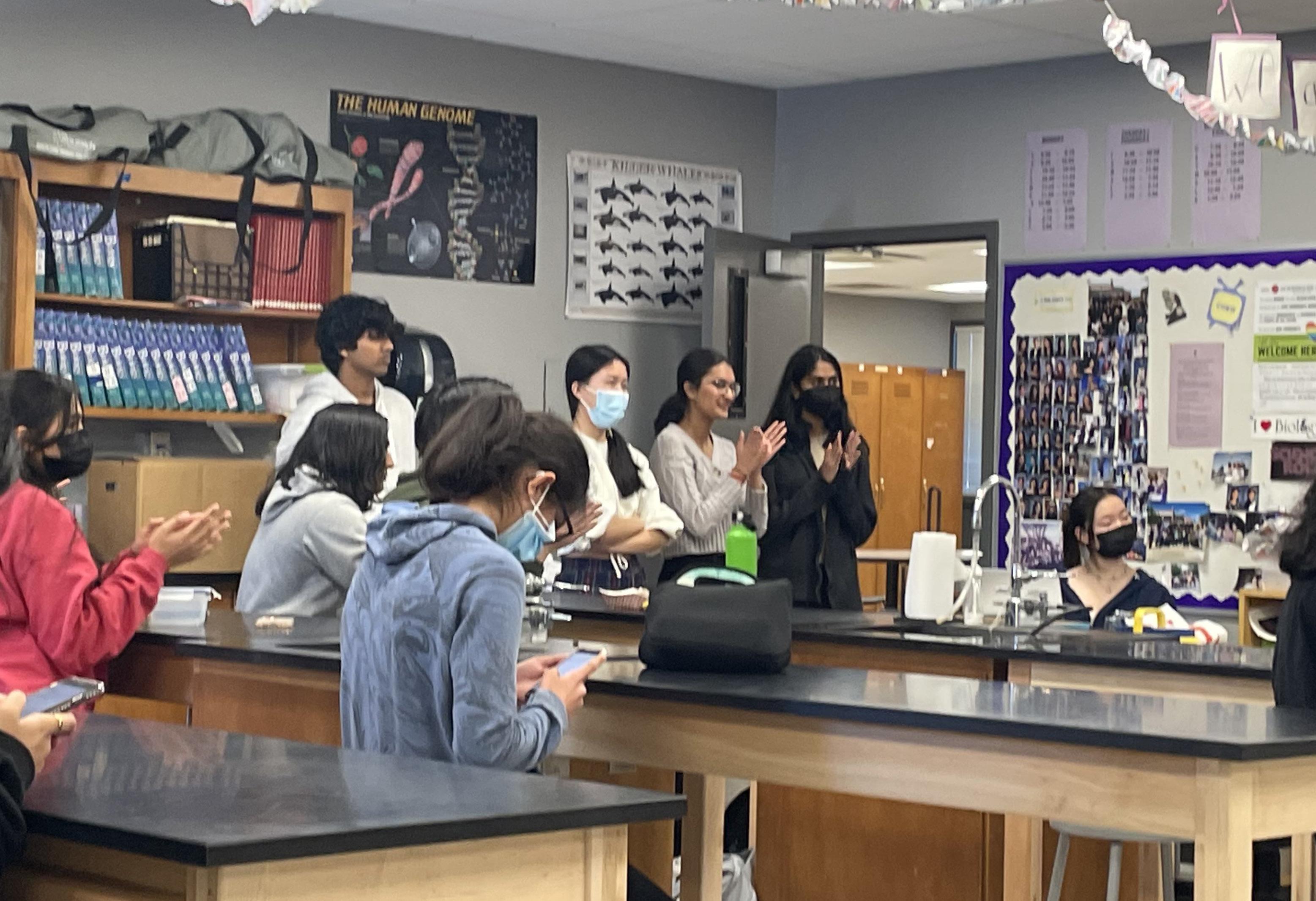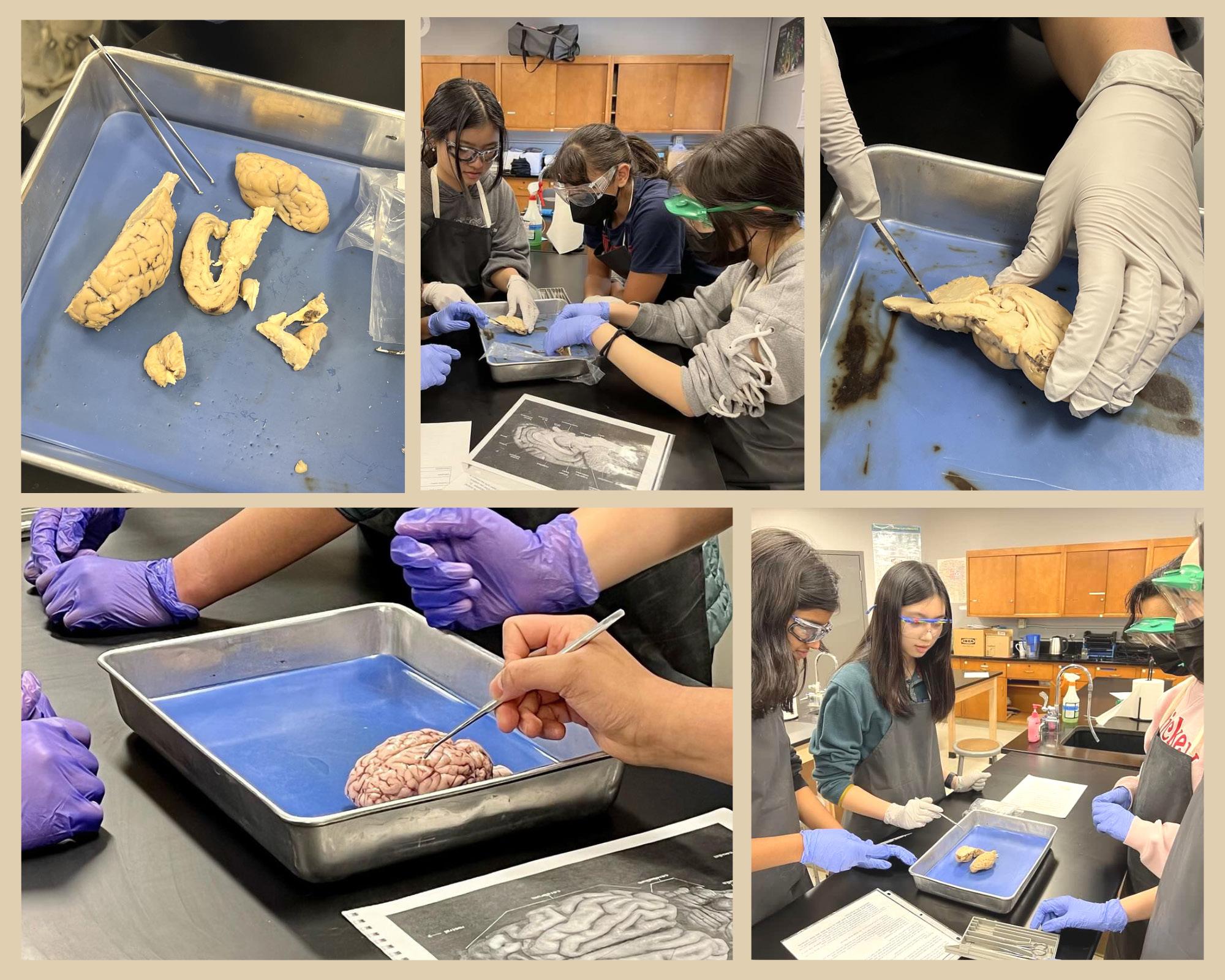
3 minute read
NEUROSCIENCE CLUB: INTO THE UNKNOWN
BY SIYA NAVALGUNDKAR
The history and role of Neuroscience Club at MVHS as it delves into the unknown of our nervous systems
Advertisement
Neuroscience is an intriguing and dynamic field of study that aims to uncover the mysteries of our nervous systems: our brains, networks, and inner souls. It has led to numerous breakthroughs in fundamental aspects of cognition and human behavior. It holds promise for curing even the most devastating diseases such as Parkinson’s and Alzheimer’s. With new technologies constantly emerging, there is always a way to learn more about the brain. And even better, we have a neuroscience club right here on campus to discuss exciting explorations and the ever-present neuro news going around in the science world.
The club was established about 10 years ago, and senior Raaga Karumanchi is currently its president, having been in the club for all four years of her high school career.
“Throughout the years, we’ve focused on different aspects of neuroscience,” Karumanchi said. “Especially with the COVID-19 pandemic, there was a really big transition we went through. During lockdown, [neuroscience] club was online so we had to shift gears and do more online activities.”
Senior Preetal Deshpande, another officer, shares some of Karumanchi’s thoughts. She says that their club allows members to get a real idea of what being a med student would look like. With in-person participation, she feels the club has bounced back.
“We also go over case studies of past patients and let our members discover what it's like to pursue a healthcare career.”
Deshpande said. “Last year was kind of the first year we were able to do in-person activities again and get time in the lab.”
A major highlight of the year was the club’s sheep brain dissection. A couple of weeks ago, members took a look into a sheep’s brain and did a firsthand lab experiment. Club member freshman Sara Zhao shed some light on her experience.

“It was very hands-on and really fun because you don’t see a sheep brain every day,” Zhao explained. “It was cool to see different parts of the brain and get a close-up of what dissection is.”
Deshpande goes on to explain her interest in the dissection as well. She adds that the dissection allowed surgeons to get hands-on experience in lab work.
Deshpande said. “It was about two weeks long, and we wanted to take the time for people to see the specific parts of the brain.”
Another highlight was the speaker event Neuro Club had. They invited Stanford professor and Autism expert Lynn Koegel, who developed a widely-used autism therapy: pivotal response treatment. It is based on the idea that targeting certain areas of a child’s behavior with intensive treatment can reduce autism symptoms. Currently, they are targeting children ages 3-10, but want to explore outside of their focus group. She came in and gave a talk about her clinical trials with autism patients and what progress she’s made in the last few years.
According to Karumanchi, she is planning to major in neuroscience heading into college.
“What sparked my interest was [the] sheep brain dissection because [it] stood out to me when I initially joined the club,” Karumanchi said. “I had a couple of friends who were interested in neuroscience, and I ended up getting involved in the club myself.”
Senior Sivani Gangaram is the Activities Manager of the club, and she has some opinions on what to improve for the club’s future.
“When I first became an officer, I wanted to make the club more interactive,” Gangaram said. “It wasn’t very engaging, with lecture after lecture, so when I became the Activities Manager, I want to spread my knowledge and enthusiasm in a passionate and meaningful way. I hope that the future officers will continue the same and keep the club a fun forum for students to explore their interests.”
Most of us, in the tech-infused generation, are not aware of just how much the brain is affected by the world we interact with.
“The brain control every single aspect of our bodies. Whether it be depression, anxiety, or even sleep, the brain gets altered with different mechanisms and responses coming into the picture.” Karumanchi said. “Because neuroscience is not just the study of the brain—it’s where the unknown is uncovered.”









